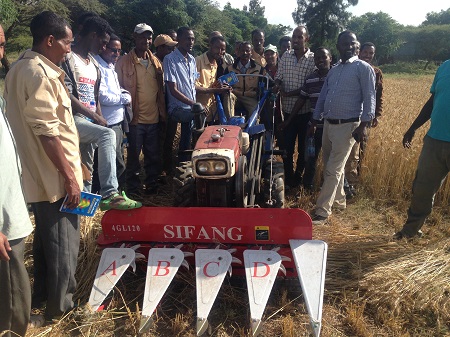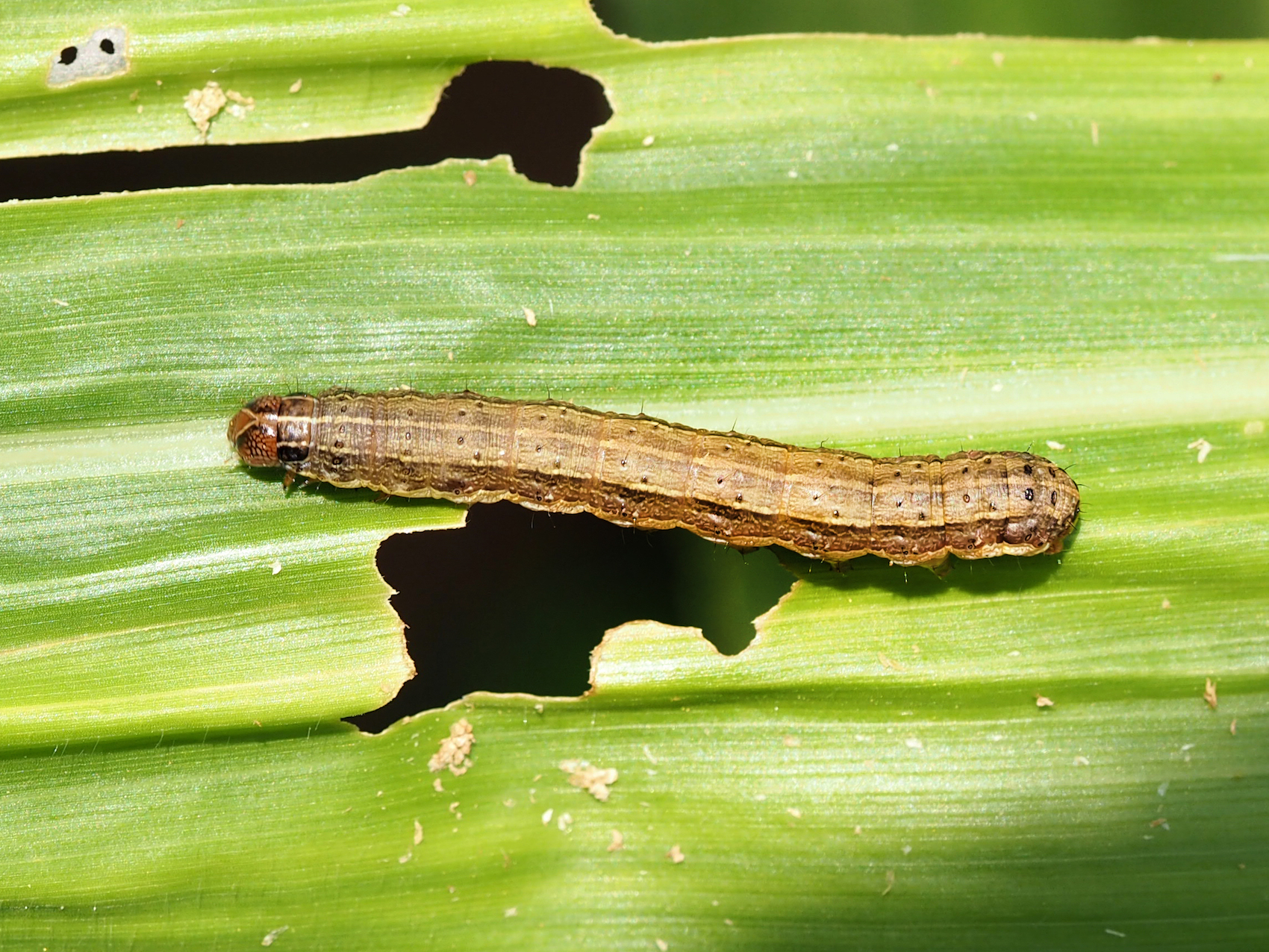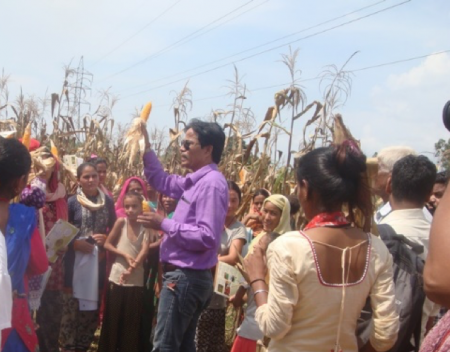Capacity development
CIMMYT training courses play a critical role in helping international researchers meet national food security and resource conservation goals. By sharing knowledge to build communities of agricultural knowledge in less developed countries, CIMMYT empowers researchers to aid farmers. In turn, these farmers help ensure sustainable food security. In contrast to formal academic training in plant breeding and agronomy, CIMMYT training activities are hands-on and highly specialized. Trainees from Africa, Asia and Latin America benefit from the data assembled and handled in a global research program. Alumni of CIMMYT courses often become a significant force for agricultural change in their countries.
Mexico and CIMMYT share a common vision for sustainable food production
 Capacity development
Capacity development
Mexico’s Secretariat of Agriculture, Livestock, Rural Development, Fisheries and Food (SAGARPA) is committed to provide Mexican farmers with the best possible seed and technical support, according to Baltazar Hinojosa Ochoa, Mexico’s secretary of agriculture, during his first visit to the International Maize and Wheat Improvement Center (CIMMYT) on May 6.
Precision Nutrient Management: The Future of Nitrogen Use Efficiency
 Capacity development
Capacity development
This March, the Borlaug Institute of South Asia (BISA) held an international workshop on enhancing Nitrogen use efficiency in wheat using the combined approach of breeding and precision agronomy in Ladhowal, Punjab.
Young women scientists who will galvanize global wheat research
 Capacity development
Capacity development
Winners of the Jeanie Borlaug Laube Women in Triticum (WIT) Early Career Award joined an on-going wheat research training course organized by CIMMYT.
Building small scale mechanization capacity of service providers in Ethiopia
 Capacity development
Capacity development
A CIMMYT project aims to increase soil fertility through direct row planting of major crops in Ethiopia, such as maize, wheat and teff.
CIMMYT promotes gender awareness in agriculture research and development in Ethiopia
 Capacity development
Capacity development
Gender awareness and gender-sensitive approaches are slowly spreading into agricultural research, extension, and policy in Ethiopia, according to industry experts.
New guides help agricultural scientists think gender in research design
 Capacity development
Capacity development
A new set of resources has been released to aid agricultural researchers in integrating gender sensitivities into their research for development projects.
Government officials learn about agricultural mechanization in Bangladesh
 Capacity development
Capacity development
On December 10 2017,CIMMYT joined SAARC in celebrating the 33rd SAARC Charter Day.
Success in mainstreaming CSISA-supported agricultural technologies
 Capacity development
Capacity development
Since 2015, CSISA has been working to generate evidence on best management practices for improving cropping system productivity in the Eastern Indo-Gangetic Plains.
The keys to make seeder calibration easy
 Capacity development
Capacity development
The Cereal Systems Initiative for South Asia (CSISA) is helping farmers in Bangladesh save money and time with the implementation of simple calibration keys.
Local businesses boost farmer access to quality seed in Nepal
 Capacity development
Capacity development
The Nepal Seed and Fertilizer project is working with seed companies to build their capacity for both seed production and distribution.
Ethiopian farmers profit from scaled-up, fast-track production of disease resistant wheat seed
 Capacity development
Capacity development
More than 75,000 small-scale wheat farmers in Ethiopia’s 4 major wheat-growing regions gain access to a vital asset—over 400 tons of seed of new, disease resistant wheat varieties.
CIMMYT scientist speaks at recent China congress
 Capacity development
Capacity development
Zhonghu He, CIMMYT distinguished scientists and country liaison office in China, was one of a small number of scientists invited to the recent 19th Congress of the Chinese Communist Party. He was selected based on his outstanding contributions in wheat research.
New Publications: Addressing conflict through community resource management
 Capacity development
Capacity development
A new study examines the role of collective resource management in conflict.
Three technologies that are changing agriculture in Bangladesh
 Capacity development
Capacity development
In agrarian countries like Bangladesh, agriculture can serve as a powerful driving force to raise family incomes and the nation’s entire economy.


